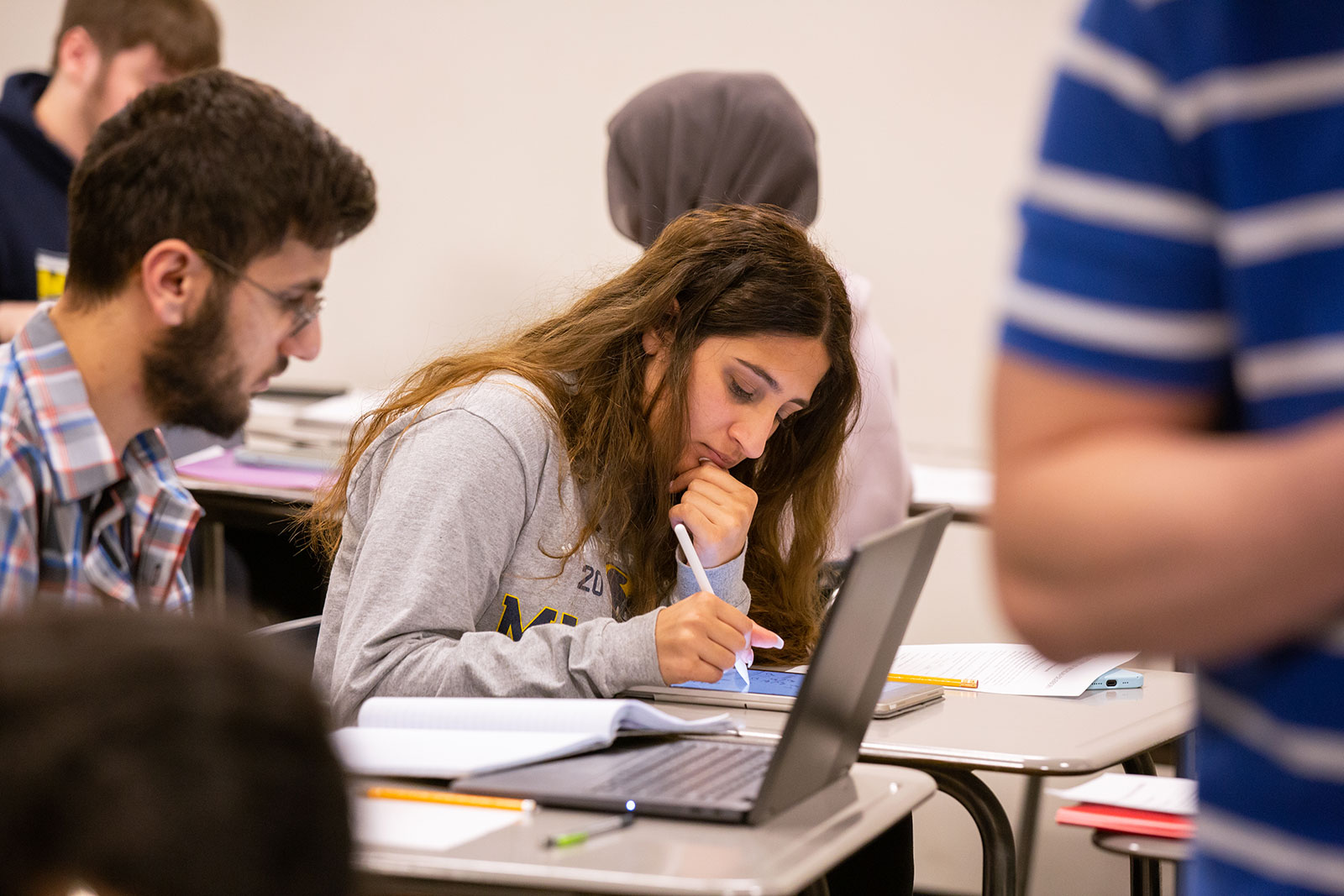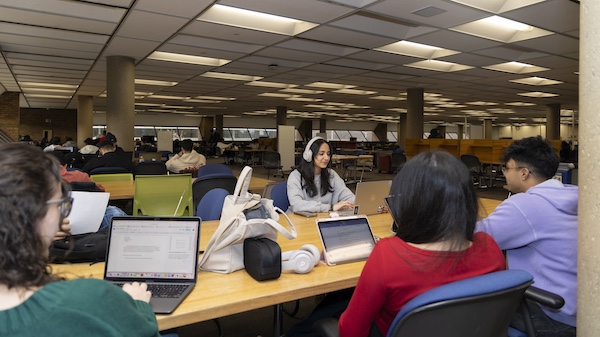Related Resources
Study Everything from Atoms to Galaxies
 Physics is the study of the most fundamental properties of matter and energy, and it helps us understand the universe in which we live. All the other science and engineering disciplines depend on the foundation of physics. Gain the knowledge and skills you need to enter this rewarding and challenging field with a bachelor’s degree in physics from the University of Michigan-Dearborn.
Physics is the study of the most fundamental properties of matter and energy, and it helps us understand the universe in which we live. All the other science and engineering disciplines depend on the foundation of physics. Gain the knowledge and skills you need to enter this rewarding and challenging field with a bachelor’s degree in physics from the University of Michigan-Dearborn.
With courses in computational physics, environmental physics, instrumentation for scientists, mechanics, optics, biological physics, astrophysics, quantum mechanics, atomic and nuclear physics, solid state physics, and other related topics, our program offers limitless opportunities for learning and research.
Where a Physics Degree Will Take You
We’ve designed the program to meet the needs of students with various objectives. It will prepare you for graduate studies at highly ranked universities, for a technical career immediately after graduation, for earning certification as a teacher, or for entering medical, dental or other professional schools.

